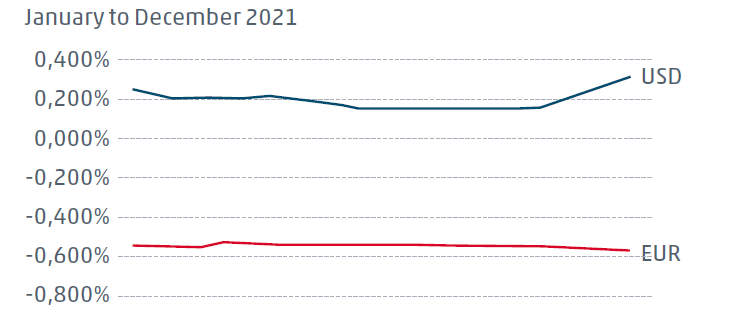Effects of extinction of LIBOR rate to Brazilian TP controls
In 2021, the United Kingdom’s Financial Conduct Authority announced several changes to
the benchmark settings currently published by the ICE Benchmark Administration, including
the cessation of the publication of EUR LIBOR settings, as well as the 1-week and 2-month
USD LIBOR settings after 31 December 2021. The Financial Conduct Authority also decided to
continue to determine and publish the 6-month USD LIBOR settings at least until the end of
June 2023. These changes may have a direct impact on TP calculations performed for loans
granted by and to Brazilian legal entities.
The transactions involving interest carried out by Brazilian legal entities with foreign
related parties (as defined under Brazilian TP legislation), related or unrelated parties
domiciled in tax havens or non-residents subject to privileged tax regimes must follow
Brazilian TP rules and the thin capitalisation rules.
In accordance with Brazilian TP rules, the interest expenses incurred by a Brazilian legal
entity shall be considered deductible up to the amount that does not exceed the rates
determined based on the following rules (the minimum interest revenues recorded by
Brazilian companies shall be calculated based on the same rules):
As a result, after the changes announced by the Financial Conduct Authority, the Brazilian
companies that used to apply EUR LIBOR to comply with the TP rules to calculate the benchmark
for interest expenses (or revenues) will be forced to use the 6-month USD LIBOR (“USD
LIBOR 6M”).
The impact that could arise for Brazilian companies may be verified by the comparable
analysis of the historical variation of EUR LIBOR 6M versus USD LIBOR 6M during 2021:
Whilst the EUR LIBOR 6M was negative and relatively constant for 2021, the USD LIBOR 6M
was positive and had a slight fluctuation. In view of this situation, the replacement of the
EUR LIBOR 6M rate for the USD LIBOR 6M rate could result in two different scenarios: (i) if the
borrower is a Brazilian company, this change could, in principle, increase the maximum
amount of interest to be deducted from the Corporate Income Tax (IRPJ) and Social Contribution
on Net Profit (CSLL) basis; and (ii) if the lender is a Brazilian company, this replacement
could result in a corresponding increase of the minimum interest revenue to be
considered by the Brazilian company for IRPJ and CSLL purposes.
The Brazilian Federal Revenue Service has not announced any changes to the rules currently
in place in view of these changes.
As such, Brazilian companies should evaluate whether adjustments are necessary to loan
agreements currently in place, if based on EUR LIBOR settings, and verify whether additional
adjustments to the loans are advisable to use other methodologies provided by TP
legislation.
It is recommended that Brazilian legal entities and multinationals with loans with Brazilian
companies keep these changes in mind for future transactions.




